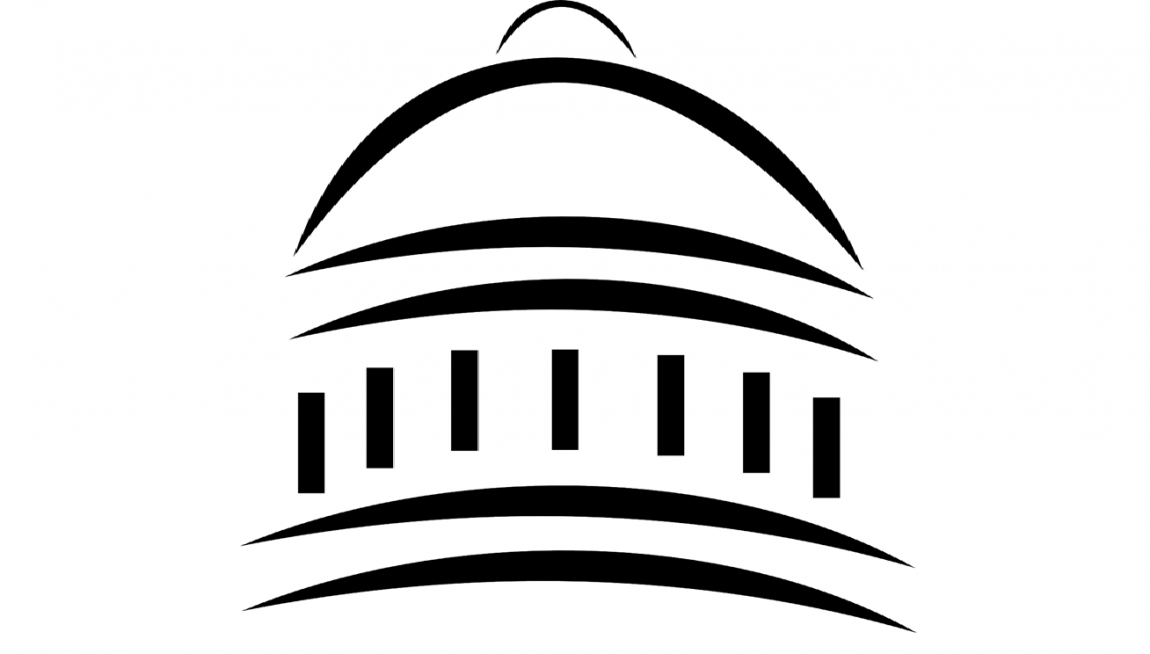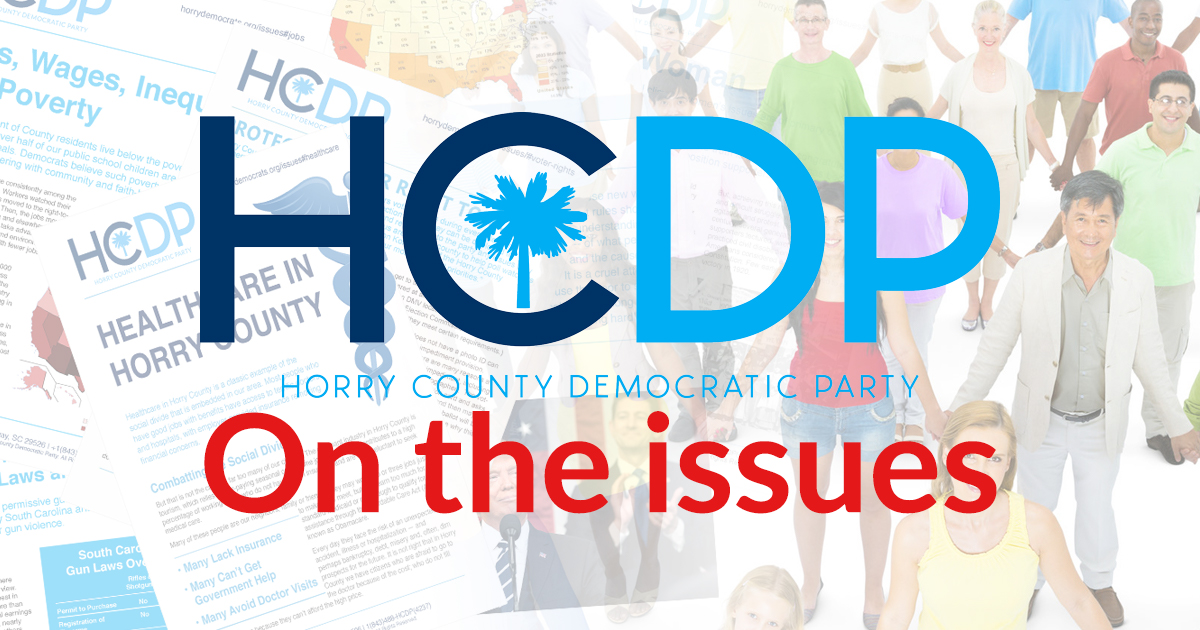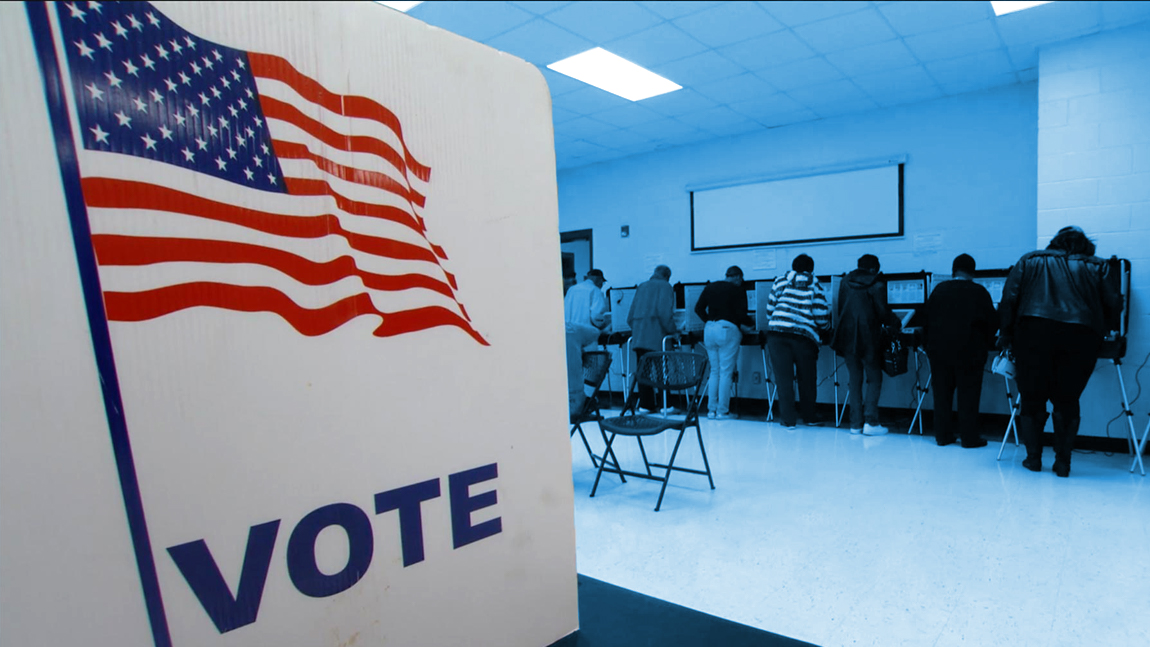By David Higham
HORRY COUNTY GOVERNMENT / LOCAL ISSUES
Local Cases and Deaths: On June 23 Horry County saw its highest single-day increase in positive COVID-19 cases since the pandemic began with 133. (WMBF News 6/23/2020) As of June 25 COVID-19 cases in Horry County total 2,495, including 42 deaths. (Myrtle Beach Online 6/25/2020)
Hotel occupancy rates across the Grand Strand are nearing pre-pandemic levels: Myrtle Beach Area Chamber of Commerce President and CEO Karen Riordan said the latest figures – which ended May 31 – showed hotel occupancy rate at about 60 percent. That was 17 percent behind the same week in 2019 but is ahead of the 40 percent occupancy rate that was predicted at the start of the pandemic. (Myrtle Beach Online 6/13/2020) On June 25 governors from New York, New Jersey and Connecticut ordered their residents to self-quarantine for two weeks after returning from South Carolina and six other states. (Post and Courier newspaper, 6/25/2020)
Trump Suspends Temporary Worker Programs: President Trump has suspended, through the end of 2020, several visa workers programs that provide approximately 3,000 seasonal workers to the Myrtle Beach area each year. This will have a “pretty strong impact because businesses are already struggling to have the same amount of workforce in place they did before all of this occurred”, according to Stephen Greene, president and CEO of the Myrtle Beach Hospitality Association. (Myrtle Beach Online 6/24/2020)
County Budget Passed: Horry County Council voted 9 to 3 to approve the final reading of the fiscal year 2021 budget. The new budget is $73 million less than last year’s budget. Many capital improvement projects were removed from the budget to make up for the revenue shortfalls. Employee raises were also postponed, and a general hiring freeze placed on the coming year. (Myrtle Beach Online, 6/16/2020)
STATE / SC LEGISLATURE
SC Joins States with Greatest Surge in COVID Cases: A CNN analysis of data from Johns Hopkins University (for the week June 9 through June 15) shows that South Carolina joined nine other states in recording their highest seven-day average of new coronavirus cases per day since the pandemic started months ago. The states seeing record high averages are Alabama, Arizona, California, Florida, Nevada, North Carolina, Oklahoma, Oregon, South Carolina, and Texas. While some politicians have attributed higher case numbers to better testing, recent surges are outpacing the increase in tests, said Dr. Ezekiel Emanuel, chair of the Department of Medical Ethics and Health Policy at the University of Pennsylvania. “You can have a small percentage increase because of testing in terms of number of cases. But when you see 50% or 150% increase in the number of cases you are seeing – which is what we are seeing across the South—that is not testing. That is new cases. That is community spread”. (CNN 6/17/2020)
DHEC Finds “Deep and Wide Community Spread”: The SC Department of Health and Environmental Control (DHEC) on June 25 reported 1,106 new COVID-19 cases, and eight more deaths across South Carolina. It brings the states’ COVID-19 cases up to 28,962 with 691 deaths. Of the 6,536 tests performed on June 25, not including antibody tests, 16.9 percent came back positive. The state’s hospital capacity was a tad over 75 percent and Horry County’s hospital capacity was 84 percent. Around the state, 881 hospital beds held patients who have tested positive or are under investigation for COVID-19. This equates to over 11% of the state’s hospital beds. “The rising percent of tests coming back positive and the increase in the number of hospitalized COVID-19 patients is evidence of a deep and wide community spread. For comparison, the percent of South Carolina tests that were positive on June 1 was less than 10 percent and just 450 people were hospitalized with the vital disease”, according to DHEC officials. (My Horry News, 6/25/2020)
Lawmakers pass Bill to distribute Federal Coronavirus Aid: The SC Legislature on June 24 approved a bill allocating $500 million that begins replenishing the state’s trust fund for jobless benefits, provides $210 million to bring elementary and middle school students back to class one-week early in August and provides $50 million to start expanding access to high-speed internet. An estimated 150,000 students lack access to high-speed internet, which made it especially difficult for them to continue learning remotely after schools had to close in mid-March. Funds were also appropriated to provide for summer “Academic Recovery Camps” for at-risk students in Kindergarten through the 3rd grade. The bill also provides $270 million to reimburse state agencies and local governments for money already spent on the pandemic. Total cost of the bill is $1.2 billion. It represents the first, big chunk of the $1.9 billion the federal CARES Act provided South Carolina to reimburse state and local governments for COVID-19 related expenses. That is South Carolina’s share of the $150 billion passed by Congress and distributed to governors nationwide. (Post and Courier 6/24/2020)
Legislature Punts on Absentee Voting Expansion: SC Democrats are planning to file more lawsuits challenging the state’s absentee voting limitations during the coronavirus pandemic after lawmakers declined to expand ballot options for the general election during a brief legislative session held on June 24 and June 25. Republican leaders said they would consider acting when they return in September if the pandemic is still at large, as health officials expect. (Post and Courier 6/24/2020)
Governor opens dining rooms against the advice of DHEC: Governor Henry McMaster didn’t follow the advise of South Carolina’s health department (DHEC) when he chose to allow restaurants to re-open their dining rooms May 11, one week before the DHEC recommended date of May 18. (The State newspaper 6/21/2020)
SC Unemployed Remains Persistently High: Roughly 195,000 South Carolinians continued to collect or apply for unemployment benefits during the second week in June, highlighting a serious problem for the state’s economy. Over the past two months SC has posted an official unemployment rate of more than 12 percent. The latest numbers suggest the rate is likely to remain staggeringly high in June as well. (Post and Courier 6/25/2020)
Reopening SC Schools: South Carolina has published draft guidelines for schools to get students back into the classroom in the fall. The guidelines call for social distancing in classrooms and buses, set protocols for wearing personal protective equipment, and suggest ways to minimize interaction among large groups of students. The recommendations are not mandatory, but rather a list of “best practices” that school administrators can use to minimize the risk from coronavirus. (The State newspaper, 6/11/2020)
Audit Faults SC Commerce: A new report from the SC General Assembly Legislative Audit Council suggests the SC Commerce Department failed to properly oversee millions of dollars in grants and tax incentives that are used to lure businesses and jobs to South Carolina. The report criticizes Commerce Department officials for a lack of transparency, failing to scrutinize companies that receive taxpayer money and for allowing businesses to keep millions of dollars even when they do not create the number of jobs they promised. (Post and Courier 6/22/2020)
Gas Tax Set to Climb: The SC Department of Revenue issued a reminder that the statewide gasoline tax will climb by another two pennies to 24 cents a gallon at the start of the 2020 fiscal year which occurs on July 1. (Post and Courier, 6/8/2020)
Changes Proposed for State Flag: For decades, the state’s flag has been up to interpretation by flag manufacturers, showing many variations for the design of the palmetto tree, the crescent, and the blue background. A study committee was charged in 2018 to come up with recommendations, and findings were reported on March 4 of this year. It is now up to the Legislature to adopt or modify the suggestions. (Charleston City Paper, 5/4/2020)
FEDERAL / US CONGRESS/ NATION
House Passes Policing Reforms: The House has approved a sweeping policing reform bill, setting up a face-off with the Republican Senate where bipartisan talks have stalled. The bill was approved by a vote of 236 – 181, drawing the support of three Republican members. The bill was named in honor of George Floyd, a Black man who was killed in police custody one month ago in Minnesota – his death sparking nationwide calls to address police brutality and racism and prompting weeks of national protests. The bill would ban chokeholds, no-knock warrants in drug cases, and reform qualified immunity, making it easier to pursue claims against police officers in civil court. It would change the standard for evaluating whether use of force was justified. Currently, officers only need to prove that use of force was “reasonable”. The House bill would change the standard to that officers need to prove that use of force is “necessary”.
A day before the House vote, Senate Democrats blocked consideration of a Republican policing reform bill authored by Sen Tim Scott, R-SC. That bill sought to offer federal incentives to compel departments to implement best practices, train in de-escalation and end controversial tactics, while penalizing those that do not. But the bill stopped short of implementing federal mandates to curb police use of force and other questionable practices – like choke holds and carotid holds. These and other shortcomings Democrats said made the bill “irrevocably flawed”. (ABC News 6/25/2020)
SC Congressmen United in call for more Rural Broadband: All nine members of the SC Congressional Delegation, from both parties, have signed onto a letter urging U.S. House and Senate leaders to invest in rural broadband expansion. The letter, spearheaded by Rep. Jim Clyburn (D-Columbia) and Rep. Joe Wilson (R-Springdale), asked top officials to consider including broadband funding in future bills responding to the coronavirus. They argued the pandemic has shown how “unconnected Americans are at more of a disadvantage than ever”. (Post and Courier, 6/1/2020)
House Set to Vote on H.R. 51 making Washington DC a State: The boundaries of the new state would encompass the district’s residential and business area, but would exclude the federal monuments, the White House, Capitol, Supreme Court and the federal departments around the national mall which would remain under federal oversight. Statehood would allow the city’s congressional delegate to vote on the House Floor for the first time. The city’s 700,000 residents would also be represented in Congress by the seating of 2 Senators, same as any other state. The Republican controlled Senate and President Trump have vowed to oppose the bill. (ABC News 6/26/2020)
THE COURTS
The US Justice Department has asked the Supreme Court to invalidate the Affordable Care Act: The justices will hear arguments in the case some time next term, although it is unclear if they will occur before the November election. (CNN 6/26/2020)
Employment Protections for LGBT individuals: The US Supreme Court extended broad workplace protections to gay, lesbian and transgender employees, in a decision that found a 55-year-old anti-discrimination law covers them even if Congress did not intend that when it passed the law. The 6-3 decision was written by conservative justice Neil Gorsuch. He was joined by conservative Chief Justice John Roberts, and the four justices that comprise the liberal wing of the court. (Rollcall newspaper 6/15/2020)
Critical Voter Suppression Case in Battleground State: The Wisconsin Supreme Court has agreed to hear a case that could remove about 129,000 people from the state’s voter rolls ahead of the November election. Those voters, who failed to respond to a mailing from the Wisconsin Elections Commission, have a “movers” watermark next to their name in poll books, and they need to confirm that they live at the same address or register at a new one in order to receive a ballot. (CBS News 6/1/2020)
DOJ Backs Lawsuit against Michigan Governor: The US Justice Department said in a court statement that it was supporting seven businesses that had filed a lawsuit challenging Michigan Governor Gretchen Whitmer’s executive orders related to the novel coronavirus pandemic. (CNN, 5/29/2020)
Court Rules Gay Spouses entitled to Social Security Survivors benefits: A federal court in Arizona ruled in favor of a class action lawsuit, Ely v. Saul, on behalf of same sex couples denied Social Security benefits because of gay marriage bans. Despite a decade’s long relationship and eventual marriage, the couple had not been married for the requisite nine months before Saul died. Because Ely v. Saul is a class-action suit, all couples in a similar position to Ely will be able to access survivors’ benefits. (NBC News 5/29/2020)
Remaking the Judiciary: President Donald Trump’s 200th judicial nominee was confirmed by the Republican-controlled Senate, marking a significant milestone in a presidency that has tilted the federal judiciary in a conservative direction for decades to come. (CNN 6/24/2020)
Questions? Contact David at dhigham32@gmail.com
Stay safe everyone






